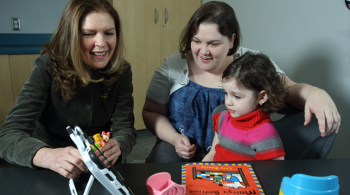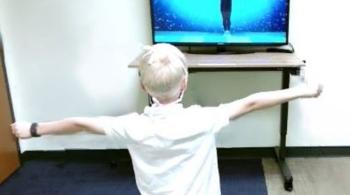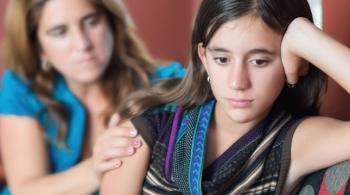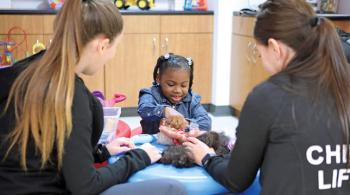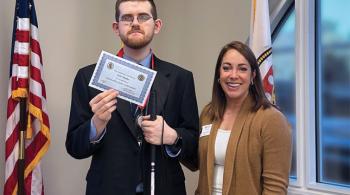
By Taylor Gleason
At Kennedy Krieger Institute, cutting-edge research fuels our passionate pursuit of possible for every child. Behind every potential breakthrough is a team of researchers making life-changing discoveries on a regular basis. Explore how our research is shaping pediatric neurological care and advances in medicine.
Research 101: What Are the Steps Involved?
Study: Video-based analysis of human movement
Co-investigators:
- Dr. Ryan Roemmich, research scientist at Kennedy Krieger
- Dr. Jan Stenum, research associate at the Johns Hopkins University School of Medicine
-
The Idea
Early 2020: With their three-dimensional motion capture laboratory closed for the pandemic, Dr. Roemmich and Dr. Stenum look for more accessible ways to measure walking movements and gait. They begin investigating the accuracy of recording how a person walks using just a simple digital video camera—like that of a smartphone or tablet.
-
Approval to Begin
June 2020: Dr. Roemmich and Dr. Stenum submit a proposal for a research study to the Johns Hopkins Medicine Institutional Review Boards, which oversee research at Johns Hopkins and Kennedy Krieger.
September 2020: The review boards approve the study.
-
Funding
Late 2020–Early 2021: Dr. Roemmich and Dr. Stenum receive funding from the National Institutes of Health, the American Heart Association and the American Parkinson Disease Association.
-
Recruitment and Data Collection
May 2021: Over 60 participants with neurologic conditions are recruited through Kennedy Krieger’s database and Johns Hopkins clinics, and the study officially begins. Kennedy Krieger’s Center for Movement Studies conducts research on 44 people who have experienced strokes and 19 people diagnosed with Parkinson’s disease.
-
Results
Late 2023: The study reveals that videos recorded by home devices and enhanced by artificial intelligence algorithms can accurately track various medical and clinical aspects of walking.
-
Expansion
Early 2024: The focus shifts to determining if the technologies can be used to study other behaviors and allow clinicians to record quick videos of patients and immediately receive objective, comprehensive data, which would inform diagnosis, prognosis and treatment.
-
Looking Beyond
What’s Next: Dr. Roemmich and Dr. Stenum hope their work will encourage more clinicians across the U.S. to investigate similar alternatives when it comes to gait analysis.
Regulatory Approvals
Many new technologies, therapies, drugs, etc. require approval by the U.S. Food and Drug Administration or another regulating organization before they can be brought to market and used on a wide scale. It can take years to prepare new discoveries for approval, and even more time than that for approval to be granted.
Research Happening Now
Here’s a peek at a few exciting research studies recruiting participants:
- Assessing Arrhythmic Risk in Patients With Duchenne Muscular Dystrophy
Principal investigator: Dr. Andreas Barth, cardiologist at Kennedy Krieger’s Center for Genetic Muscle Disorders
This study is gathering information about heart rhythm issues in patients with Duchenne muscular dystrophy. The research team is recruiting males with the disease who are at least 10 years old and familiar with extended heart-monitoring devices. Researchers will examine participants’ past and current medical records as part of the study.
Principal investigator: Dr. Rebecca Landa, vice president and executive director of the Institute’s Center for Autism Services, Science and Innovation (CASSI™)
Partnering principal investigator: Dr. Rachel Reetzke, speech-language pathologist at CASSI
Researchers at CASSI are studying the differences between in-person and virtually delivered social communication interventions for toddlers with autism. Each participating family completes a questionnaire about their child, and the child is developmentally assessed. Eligible families receive a 12-week communication intervention.
Principal investigator: Dr. Bradley Grant, medical director of the Institute’s Center for Child and Family Traumatic Stress
This study is evaluating an investigational drug for treating children and teens ages 10 to 17 with bipolar depression.

